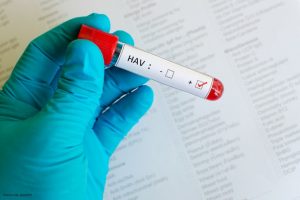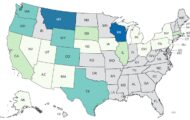Americans headed to Sochi to cheer on Team USA should have a Hepatitis A vaccination before traveling, according to the Centers for Disease Control and Prevention (CDC). The agency recommends the vaccine for travel to all countries except Canada, Japan, New Zealand, Australia, and countries in western Europe or Scandinavia.
 Hepatitis A is a viral disease of the liver. It is spread when a person ingests food or drinks contaminated with microscopic amounts of fecal matter from an infected person.
Hepatitis A is a viral disease of the liver. It is spread when a person ingests food or drinks contaminated with microscopic amounts of fecal matter from an infected person.
Some people who are infected show no symptoms. Others have fever, fatigue, loss of appetite, nausea, vomiting, stomach pain, and yellowing of the skin or eyes lasting one to six months. Most people who get Hepatitis A recover with no lasting liver damage.
Vaccination can prevent illness. The vaccine is usually given in two doses six months apart. For those who did not get the vaccine prior to travel, the vaccine can be given up to 14 after exposure and still be effective.
The CDC recommends that travelers wash hands often and avoid touching their eyes, nose and mouth. There are also some foods and drinks that are considered safer than others.
Foods that are considered safe to eat include those that are cooked and served hot, hard cooked eggs, pasteurized dairy products and fruits and vegetables that you can wash with bottled water or peel yourself. Beverages that are safe to drink include: bottled water that is in a sealed bottle, carbonated water, water that has been boiled or treated, carbonated drinks, hot coffee, hot tea and pasteurized milk.
Don’t eat wild game, food served at room temperature, foods from street vendors, eggs that are raw, soft-cooked or runny; raw or rare fish or meat; condiments made with fresh ingredients such as salsa; unpasteurized dairy products, flavored ice or popsicles. Don’t drink tap or well water, drinks made with tap or well water such as reconstituted juice, or unpasteurized milk.
Last summer, a 10-state outbreak of Hepatitis A sickened 162 people, who ate a frozen berry mix that contained contaminated pomegranate seeds imported from Turkey. Seventy one people were hospitalized in that outbreak.




